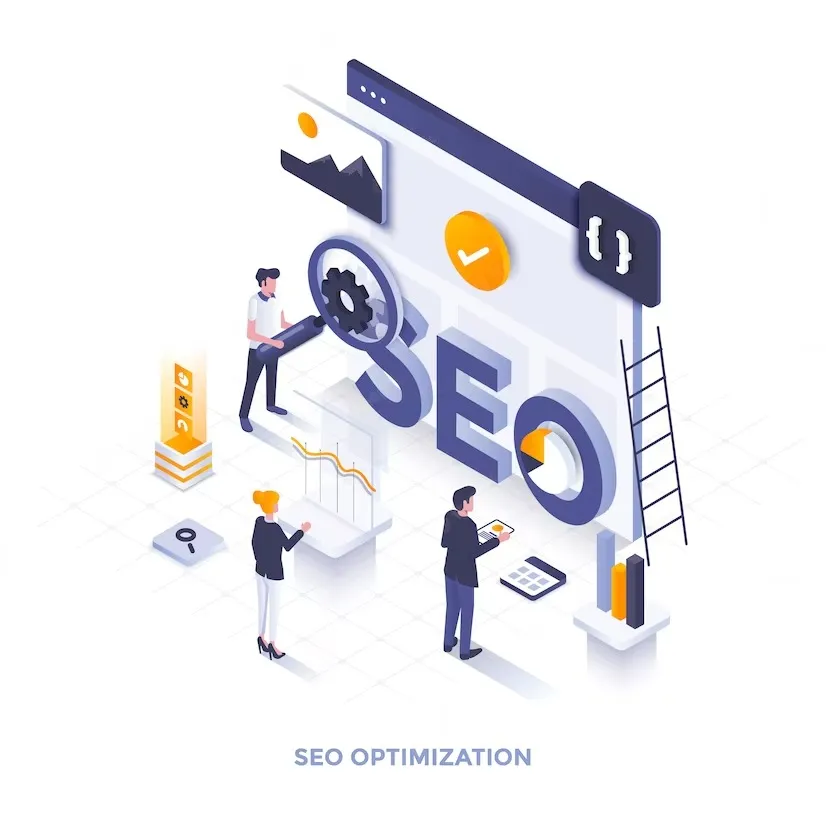Are you interested in gaining a deeper understanding of how user behavior can affect your SEO strategies? If so, then this blog post is for you! We’ll be diving into the psychological aspects of user behavior and exploring how understanding them can help you achieve better rankings on search engines.
We’ll discuss why it’s important to consider psychological factors such as motivations and decision-making when planning your SEO strategies and provide useful tips to help you make the most out of your SEO efforts. So, if you’re ready to uncover the secrets of the psychology of SEO, let’s get started!

The Importance of Understanding User Behavior in SEO
When it comes to SEO strategies, understanding user behavior is crucial. User behavior plays a significant role in determining the success of your website and its rankings on search engines. By gaining insights into how users think, act, and make decisions, you can tailor your SEO efforts to better meet their needs and expectations.
One key reason why understanding user behavior is important in SEO is because it allows you to align your content with user intent. By knowing what users are looking for and what they expect to find, you can optimize your website and create targeted content that resonates with your audience. This not only improves the user experience but also increases the likelihood of users engaging with your content and converting it into customers.
Additionally, understanding user behavior helps you identify opportunities for improvement and optimization. By analyzing behavioral metrics such as bounce rate, time on page, and click-through rate, you can identify areas where users may be experiencing difficulties or where they may be losing interest. This valuable information allows you to make data-driven decisions and make adjustments to your website and content to enhance the overall user experience.
The Psychology Behind User Behavior on Search Engines
When it comes to user behavior on search engines, there are several psychological factors at play. Understanding these factors can provide valuable insights into how users interact with search engines and can help shape your SEO strategies for better rankings.
One of the key psychological aspects of user behavior on search engines is the concept of information processing. Users often have limited attention spans and are looking for quick and relevant information. They are more likely to click on search results that provide concise and clear information that matches their query. This means that optimizing your content to answer specific user queries and providing easily digestible information can greatly improve your chances of ranking higher in search results.
Another important psychological factor is the concept of trust. Users tend to trust search engines and the results they provide. This means that the higher your website ranks in search results, the more trustworthy and authoritative it appears to users. Understanding this can help you focus on building trust with your audience by consistently providing high-quality and relevant content that aligns with their needs and expectations.

Unlocking Emotions: Leveraging Emotional Triggers for Enhanced User Engagement
The psychology of user behavior also includes the influence of emotions. Users often make decisions based on emotions rather than logic. By understanding the emotional triggers that drive user behavior, you can optimize your content to evoke positive emotions and engage users on a deeper level. This can lead to increased user engagement, longer time spent on your website, and higher chances of conversions.
Furthermore, cognitive biases play a role in user behavior on search engines. Cognitive biases are inherent biases in the way we process information and make decisions. By understanding these biases, you can optimize your content and website design to appeal to users’ natural cognitive tendencies. For example, using social proof, such as testimonials or user reviews, can tap into the cognitive bias of conformity and persuade users to trust and engage with your content.
User Intent and Keyword Research
User intent and keyword research are crucial aspects of SEO that revolve around understanding user behavior. To effectively optimize your website and content, you need to align your efforts with what users are actually searching for and what their intentions are.
User intent refers to the purpose behind a user’s search query. Are they looking for information? Do they want to make a purchase? Understanding user intent allows you to tailor your content to meet their needs and expectations. By conducting thorough keyword research, you can identify the specific keywords and phrases that users are using to find information related to your industry or products. This research helps you uncover the language and terms your target audience is using, allowing you to optimize your content with those keywords and improve your chances of appearing in search results.

Keyword Research Beyond the Basics: Uncovering Opportunities and Targeting User Intent
Keyword research also helps you discover potential gaps or opportunities in your industry. By analyzing the search volume and competition for certain keywords, you can identify areas where you can focus your efforts to gain a competitive edge. Additionally, understanding user intent and conducting keyword research can help you uncover long-tail keywords, which are longer and more specific search phrases. These keywords often have less competition and can provide you with more targeted traffic.
In summary, user intent and keyword research are essential in understanding how users behave on search engines. By aligning your content with user intentions and optimizing it with relevant keywords, you can increase your chances of ranking higher in search results and attracting more qualified traffic to your website.
Optimizing Content for User Experience
Optimizing your content for user experience is a crucial aspect of SEO. After all, the ultimate goal is to create a website that users find valuable, informative, and enjoyable to navigate. By optimizing your content to meet the needs and expectations of your audience, you can enhance their overall experience and increase their engagement with your website.
One way to optimize content for user experience is by creating high-quality, relevant, and engaging content. Users want information that is useful and easy to understand. Make sure your content is well-written, organized, and free of spelling and grammatical errors. Use headings, subheadings, and bullet points to break up your content and make it easier to scan. Additionally, consider using visuals such as images, videos, and infographics to enhance your content and make it more visually appealing.
Another important aspect of optimizing content for user experience is ensuring that your website is easy to navigate. Users should be able to find what they’re looking for quickly and easily. Make sure your website has a clear and intuitive navigation menu, and consider adding a search bar to allow users to easily search for specific information. Additionally, ensure that your website is mobile-friendly, as an increasing number of users are accessing websites on their smartphones and tablets.

Need for Speed: Accelerating Website Loading Times for Improved User Experience and SEO
Lastly, consider the loading speed of your website. Users have little patience for slow-loading websites and are likely to leave if a page takes too long to load. Optimize your website’s loading speed by compressing images, minimizing the use of large files, and using caching techniques. This will not only improve the user experience but also positively impact your website’s rankings on search engines.
By optimizing your content for user experience, you can create a website that users will want to visit and engage with. This can lead to increased time spent on your website, lower bounce rates, and higher conversion rates. So, make sure to prioritize user experience in your SEO strategies and watch as your rankings improve.
Behavioral Metrics and Tracking
Behavioral metrics and tracking are essential tools in understanding user behavior and improving your SEO strategies. By analyzing metrics such as bounce rate, time on page, and click-through rate, you can gain valuable insights into how users are interacting with your website. These metrics provide a clear picture of user engagement and can help you identify areas for improvement.
Tracking behavioral metrics allows you to understand how users navigate your website, where they may be getting stuck, and where they are most engaged. For example, if you notice a high bounce rate on a particular page, it may indicate that the content is not meeting user expectations or that the page is taking too long to load. Armed with this information, you can make informed decisions on how to optimize your website for a better user experience.
Measuring Success: The Power of Behavioral Metrics in Evaluating SEO Impact
Additionally, tracking behavioral metrics over time allows you to measure the impact of your SEO efforts. By comparing metrics before and after making changes to your website or content, you can assess the effectiveness of your strategies and make data-driven decisions moving forward.
Overall, behavioral metrics and tracking provide valuable insights into user behavior and allow you to optimize your website and content to better meet their needs. By continuously monitoring and analyzing these metrics, you can make informed decisions to improve user experience, increase engagement, and ultimately achieve better rankings on search engines. So, don’t overlook the importance of behavioral metrics and tracking in your SEO strategies.

Utilizing Psychology in Link Building
Link building is a critical aspect of SEO, and understanding the psychology of user behavior can greatly enhance your link-building strategies. When it comes to link-building, it’s important to consider the psychological factors that influence user decision-making and engagement.
One key psychological aspect to consider is the concept of social proof. Users are more likely to trust and engage with content that is backed by reputable sources and has been endorsed by others. By leveraging social proof in your link-building efforts, such as by reaching out to influencers or obtaining endorsements from industry experts, you can increase the credibility and authority of your website.
Another psychological factor to consider is the concept of reciprocity. Users are more likely to engage with and share content when they feel a sense of reciprocity or a desire to give back. By providing valuable and informative content that adds value to your audience, you can increase the likelihood of users linking to your website and sharing your content with others.
Link-Building Strategies: Harnessing the Psychology of Scarcity for Increased Engagemen
Furthermore, the psychology of scarcity can also be leveraged in link-building. Users are more likely to take action when they feel a sense of scarcity or exclusivity. By creating limited-time offers or exclusive content, you can incentivize users to link to your website in order to access these exclusive benefits.
In summary, by utilizing the psychology of user behavior in your link-building strategies, you can increase the effectiveness and success of your efforts. By understanding and leveraging concepts such as social proof, reciprocity, and scarcity, you can encourage users to engage with and link to your content, ultimately boosting your rankings and visibility on search engines.

Staying Up to Date with User Trends and Changes
Staying up to date with user trends and changes is essential for staying ahead in the ever-evolving world of SEO. User behavior is constantly evolving, and as search engines continue to refine their algorithms, it’s crucial to adapt your strategies to meet the changing needs and expectations of users.
One of the best ways to stay up to date with user trends is to regularly analyze and monitor your website’s analytics. By keeping a close eye on metrics such as traffic sources, user demographics, and behavior flow, you can identify patterns and trends in how users are interacting with your website. This valuable information can help you identify areas for improvement and make informed decisions on how to optimize your website and content.
Another effective way to stay up to date with user trends is to follow industry news and stay informed about the latest updates and changes in the SEO landscape. Subscribe to reputable industry blogs, join relevant forums and communities, and follow SEO experts on social media. This will ensure that you’re aware of any algorithm updates, changes in user behavior, and emerging trends that may impact your SEO strategies.

Building Bridges: The Crucial Role of Audience Engagement in SEO Strategy
In addition, staying connected with your target audience is key to understanding their evolving needs and preferences. Engage with your audience on social media, participate in online communities, and conduct surveys or interviews to gather feedback. This direct interaction with your audience will provide valuable insights into their preferences, challenges, and expectations, allowing you to tailor your SEO strategies to better meet their needs.
Finally, it’s important to be open to experimentation and innovation. The SEO landscape is constantly evolving, and what works today may not work tomorrow. By staying open to trying new strategies, experimenting with different tactics, and continuously learning and adapting, you can stay ahead of the curve and maintain a competitive edge in the search engine rankings.
In conclusion, staying up to date with user trends and changes is crucial for effective SEO. By regularly monitoring analytics, following industry news, staying connected with your target audience, and embracing innovation, you can ensure that your SEO strategies remain effective and relevant in an ever-changing digital landscape. So, don’t fall behind – stay up to date and continue to achieve better rankings and success in the world of SEO.










